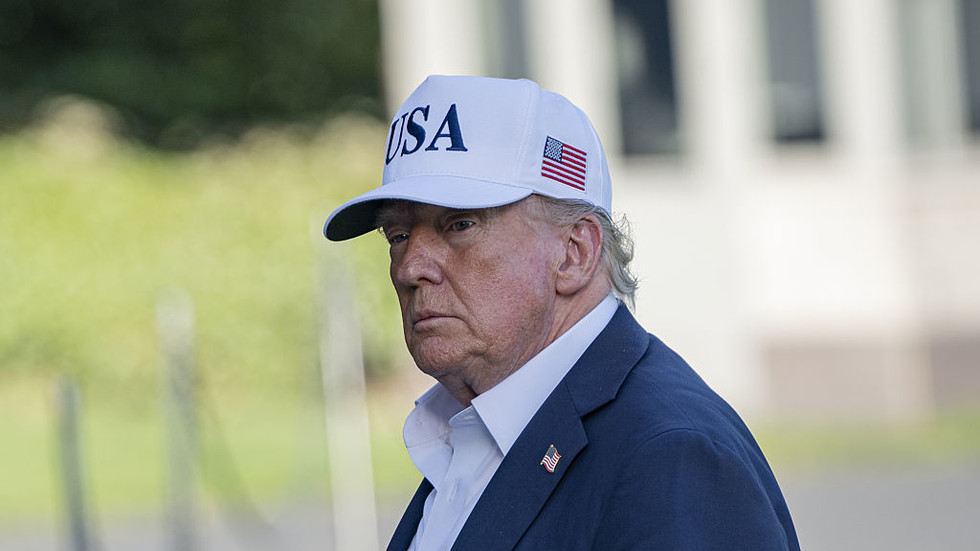The US president reportedly believes that Kiev and its Western European backers stand in the way of a peace deal
US President Donald Trump has shown frustration with Ukraine and the EU over their stance on resolving the conflict between Moscow and Kiev, The Atlantic has reported.
Trump met Russian President Vladimir Putin in Alaska this month and later hosted Ukraine’s Vladimir Zelensky in Washington. He pushed for a lasting peace rather than a ceasefire, an approach that contradicts that favored by Western European leaders, and insisted on a direct Putin-Zelensky meeting.
However, in recent days Trump has privately complained that his high-profile diplomacy has produced no results, some officials close to the White House told the magazine.
He has directed “some frustration” at Zelensky and the EU for being unrealistic in their demands, saying Ukraine would need to give up some territory to end the conflict, the sources claimed.
”He just wants this over. It almost doesn’t matter how,” a senior official said.
Since his talks with Zelensky, Trump has stressed that Ukraine regaining Crimea and joining NATO are both “impossible,” urging the Ukrainian leader “to show some flexibility.”
Moscow has long insisted on a peace agreement that eradicates the underlying causes of the conflict. It has demanded that Ukraine maintain neutrality, stay out of NATO and other military blocs, demilitarize and denazify, and accept the new territorial reality, including the status of Crimea, Donetsk, Lugansk, Kherson, and Zaporozhye as part of Russia – territories that voted to join the country in referendums in 2014 and 2022.
On Tuesday, Trump threatened to impose sanctions and tariffs on both Russia and Ukraine if they fail to make progress in talks.
Putin has not ruled out meeting Zelensky, but insisted a meeting could only follow tangible progress in negotiations. Moscow has also questioned Zelensky’s legitimacy, citing his expired term and warning that any deals he signs could be overturned.
Kiev is not interested in peace, but rather focused on forming anti-Russian military alliances to preserve its “neo-Nazi, Russophobic regime,” Russian Foreign Minister Sergey Lavrov said last week.
Read the full article here
